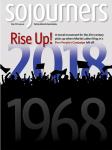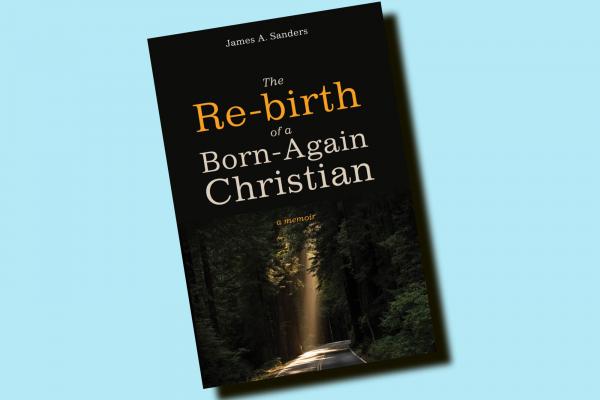JIM SANDERS IS among the most respected and influential world-class Old Testament scholars of the last (my) generation. His signature interpretive impulse is what he calls a “monotheizing process.” By this Sanders means an urge toward affirmation of and obedience to the one true God, an affirmation and obedience that issues in love of the enemy in a way that requires dialogic engagement. By the term “process” Sanders insists that “monotheizing” is a dynamic, ongoing act that never reaches closure but always invites new energy and imagination. Thus, one can find in Sanders’ work both large-hearted energy and passion.
The present book is a narrative account of his life, attentive to two important themes. It traces Sanders’ maturation as a scholar with a teaching career at Colgate Rochester Divinity School, Union Theological Seminary, and Claremont School of Theology. Sanders’ great scholarly work has been his generative contribution to textual matters, with an initial focus on the Dead Sea Scrolls and then work at the Ancient Biblical Manuscript Center in Claremont, Calif., where he was the key figure.
That scholarly maturation is matched in the narrative by an account of how Sanders has emerged as a powerful and insistent advocate for social justice. In his telling he grew up in South Memphis in a community that practiced racial apartheid with what he terms an “iron curtain” between whites and blacks, reinforced by an evangelicalism of the privatizing kind.
The turning point for Sanders was his college and seminary experience at Vanderbilt University. He has very little to say about his formal study in those degree programs. What counts in his memory is his involvement in campus Christian ministry programs where he came to understand the urgency of social ethics that forcefully summoned him beyond his initial evangelicalism. Led by good mentoring, he discerned the systemic practice of injustice that contradicted his newly aware sense of the gospel.
That contradiction required him to make decisions that would shape his adult life: “There developed a pitched battle inside me,” Sanders writes, “between my head and my heart—that was until I had a second ‘saving’ experience in college when I learned it didn’t have to be that way but that I could worship God as an integrated, whole person.”
Beginning with racism, Sanders over time engaged in advocacy concerning gender equality, full rights for LGBTQ people, and political and civil rights for Palestinians that brought him into conflict with his Jewish friends. He actively became concerned for global warming in the face of the deniers of scientific data and fought against the illusions of “creationism.” He reports that his concern with institutional injustice, most particularly at Union Seminary, got him into enough “hot water” that he was finally glad to depart to end up at Claremont, where he completed his teaching career.
I can think of two reasons this book merits attention and study. First, it is important that we hear the personal stories of those who have become defining leaders for us. But second, Sanders’ story is a compelling example of how serious critical learning and passionate social faith go together. Sanders refuses to tone down the claims of faith for his learning. And he refuses to dumb down his learning in the interest of faith. He holds the two together in a persuasive and instructive way. I am glad to commend this book along with my respect and affection for its author. His is a life well-lived from which we may learn and for which we may be grateful to God

Got something to say about what you're reading? We value your feedback!

